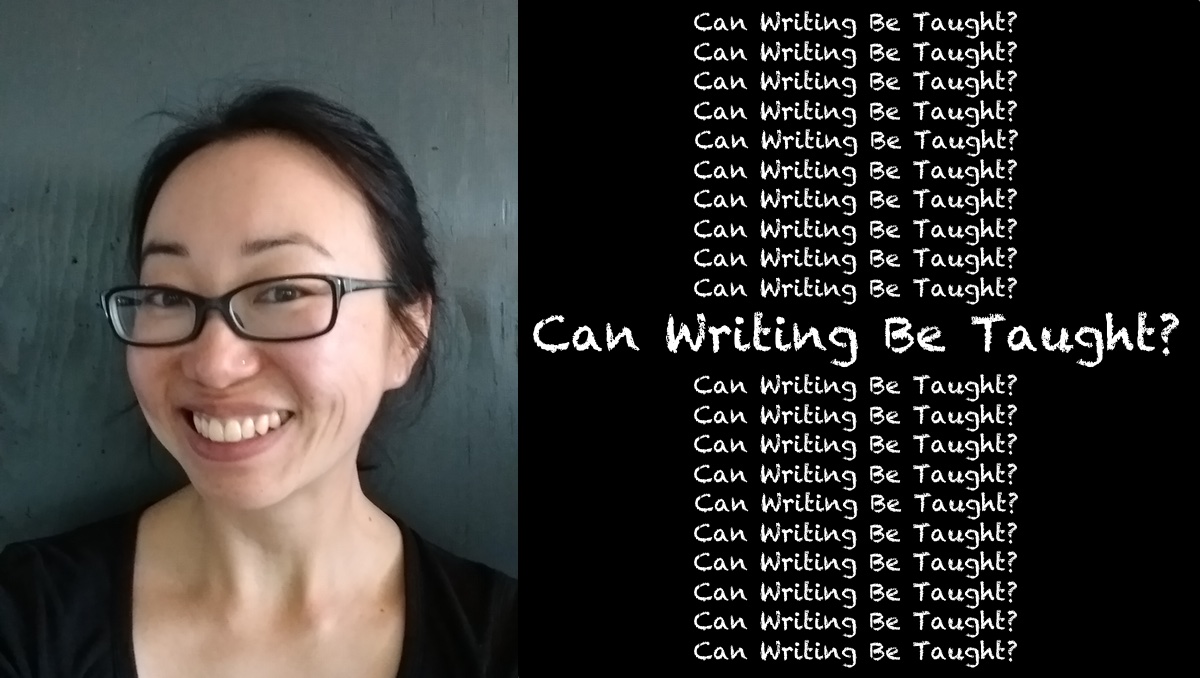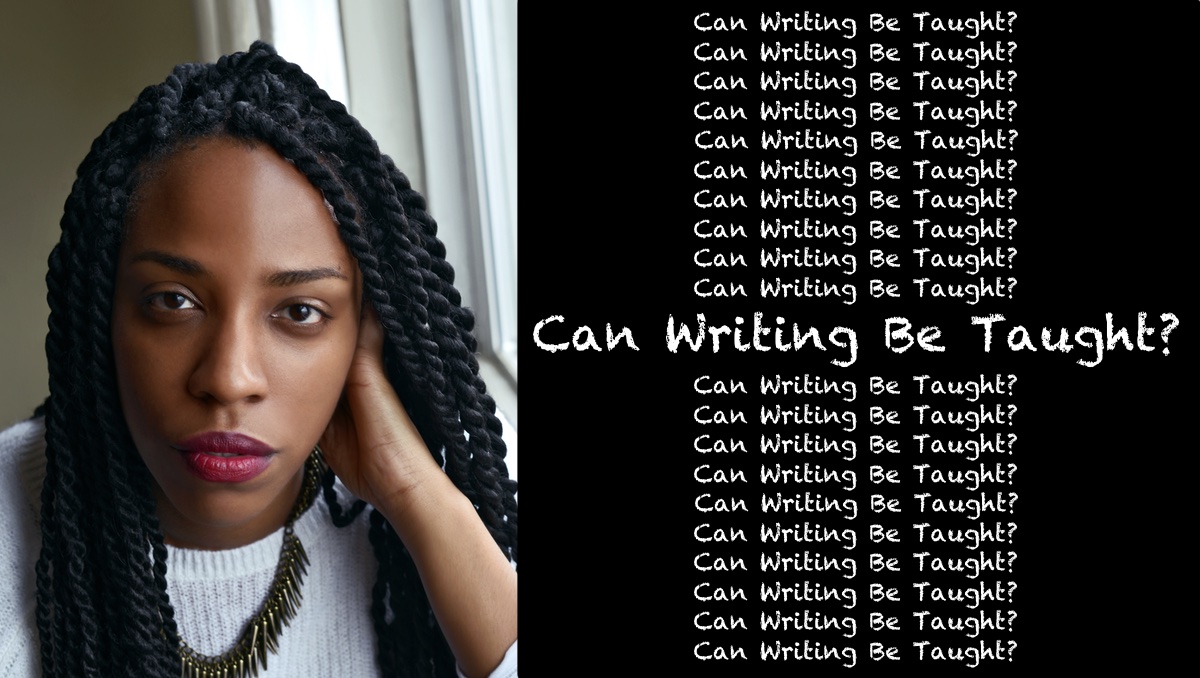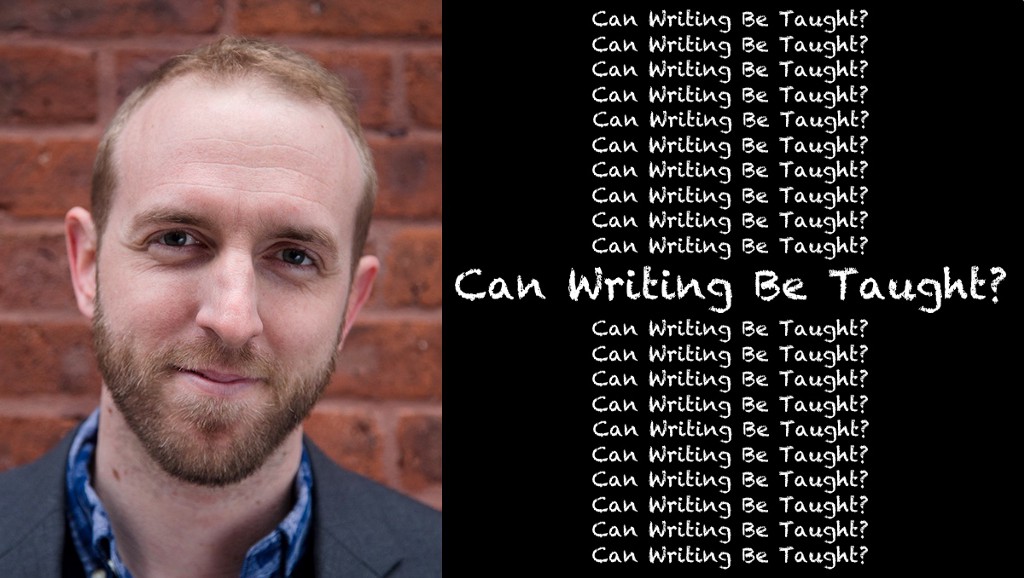interviews
Crystal Hana Kim Thinks Worrying About Publication Kills Creativity
Ten questions about teaching writing with the author of “If You Leave Me”

I n our monthly series “Can Writing Be Taught?” we partner with Catapult to ask their course instructors all our burning questions about the process of teaching writing. This month we’re talking to Crystal Hana Kim, author of If You Leave Me. Kim is both a contributing editor at Apogee and the director of writing instruction at Leadership Enterprise for a Diverse America, so she knows a LOT about evaluating and teaching writing. Her six-week fiction workshop in New York is already sold out, but don’t fret: she’ll also be teaching an online version of the class starting in December. The class is open to writers of all levels who are working on fiction projects of any length, and will help them gain skills they can apply to all future writing.

What’s the best thing you’ve ever gotten out of a writing class or workshop as a student?
When I was a graduate student, I took a seminar and workshop with Deborah Eisenberg. (If you haven’t read her yet, please do. She is brilliant.) Deborah taught me that a successful story will trust the reader while also keeping the reader tightly inside the narrative world. In other words, I learned that I didn’t have to hold the reader’s hand, that I could knock out the foundation and delve straight into the characters’ lives. At the same time, it’s important to keep the reader from irrelevant questions. When I teach, I keep these two maxims in mind.
I also loved reading my peers’ drafts. Writing can be a lonely endeavor, but it doesn’t have to be. Being able to help another writer always made me feel better. And reading others’ works, which were often stylistically and thematically different from mine, expanded my understanding of story, language, and power.
Writing can be a lonely endeavor, but it doesn’t have to be.
What’s the worst thing you’ve ever gotten out of a writing class or workshop as a student?
Sometimes, there’s the understandable fear that workshop will flatten one’s style, influencing students to all write in the same tone. However, I think a good workshop leader can prevent this by keeping each writer’s goals in mind. I once took a workshop where the teacher was not interested in this at all — rather, he thought there was only one way to write. As a result, everyone wrote with one reader in mind. That class flattened and tamped down our creativity and vision. It was my least favorite workshop, but it’s since then informed my teaching.
What is the lesson or piece of writing advice you return to most as an instructor?
Create a safe space for your students. Writing is personal. I remember the vulnerability I felt every time I handed a story in. The whole week, as I waited for the next workshop, I felt raw. It’s important for instructors to create a space where students feel comfortable taking risks and flexing new writing muscles. If the instructor believes there is only one way of writing or is unconcerned with the students’ goals, the workshop’s not going to be fruitful for anyone.
Does everyone “have a novel in them”?
Can anyone write string sentences into a novel-length form? Sure. But there’s a difference between “having a novel” in you and having a good or sellable novel in you. And of course, “good” and “sellable” are not the same. But more importantly, the phrase “have a novel in them/you” creates a hierarchy within forms of writing. I believe short stories are just as important as novels, as are essays, poems, hybrid forms, etc. The teacher’s role is to help each student become a better writer on their own grounds.
Why Kanishk Tharoor Draws Plumbing Diagrams in Writing Class
Would you ever encourage a student to give up writing? Under what circumstances?
No, I don’t think so. I firmly believe teachers are here to guide; they’re not here to determine success. I want to help each student grow as a writer, reader, thinker. Everyone is capable of that kind of growth. Unless you’re a seer, I don’t think you should tell anyone else to give up writing. I wish I was a seer, but alas I’m not.
What’s more valuable in a workshop, praise or criticism?
As a student, I needed both to feel motivated when I turned to revision. If you only receive praise, you won’t know what steps to take to improve your writing. If you only receive criticism, you can easily feel deflated. As a writer, you need to understand what’s working in order to figure out how to fix what isn’t. As a reader, giving praise tends to help you consider the writer’s motivations. And it can teach you what your readerly biases are. It can be easier to criticize, but praise is extremely useful.
Should students write with publication in mind? Why or why not?
No. Write with a reader in mind so that you are shaping your language, characters, and plot into a coherent world. But don’t write with publication in mind. That will only cloud your writing, paralyze you, or worse. To think about the publishing process (which is all business) is death to creativity.
To think about the publishing process (which is all business) is death to creativity.
In one or two sentences, what’s your opinion of these writing maxims?
- Kill your darlings. Do it. Save your darlings in a different file if you have to. Maybe they’ll come in handy later. Or you can read through the document years later and laugh at what you once held so dear. (I do this, and it is equal parts funny/embarrassing/sweet.)
- Show don’t tell. You need both, of course. But over-telling is boring. I never want to bore my reader.
- Write what you know. Write what you know. Then imagine, question, and research, in order to write about what you don’t know.
- Character is plot. Plot is rooted in the tension between what characters want and the obstacles that are preventing them from getting what they want. The two are inextricable from each other. You need both for a good story.
What’s the best hobby for writers?
Any sort of activity that uses your hands. I like pottery — throwing clay on the wheel and forming a physical object that has immediate use is so pleasurable after being stuck in my head all day.
What’s the best workshop snack?
Wine. Donuts. Since I started this Q&A with Deborah Eisenberg, I’ll end with her too. I’d never liked donuts until Deborah brought some from the Doughnut Plant to our workshop. Holy crap, those donuts are delicious.









